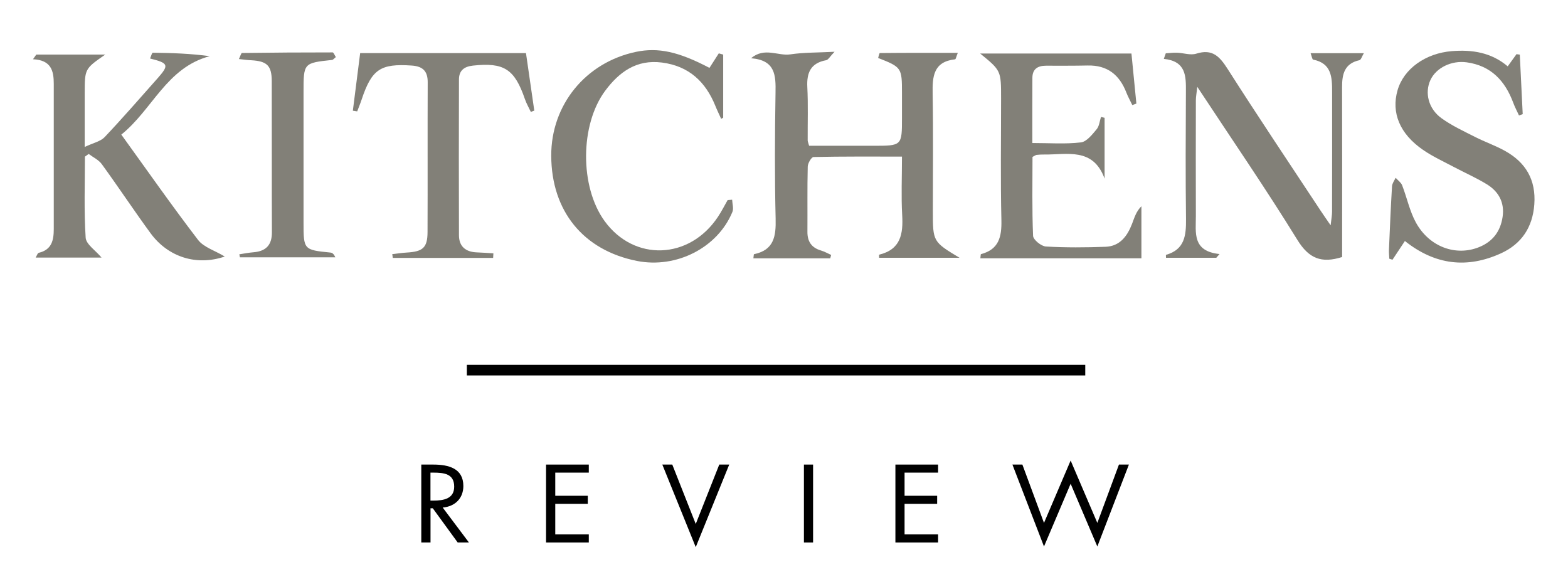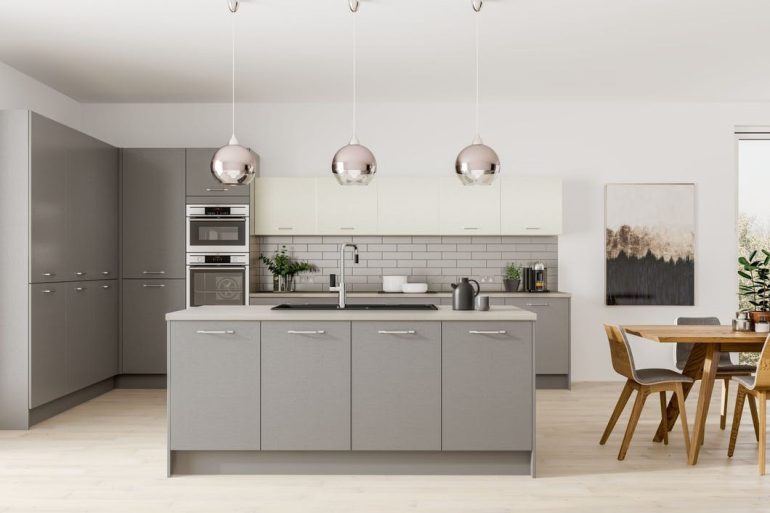How COVID-19 shifted consumer behaviour within the home improvements industry
Nearly two years ago, the bathroom market grew by a predicted £40 million between 2018 to 2019. Alongside that, the UK kitchen market grew from £4.2 billion in value to nearing £4.4 billion during the same period.
That was the state of play when COVID-19 hit.
The pandemic impacted multiple sectors. The home improvements industry, one that is immensely traditional in its approach to buying and selling, was no different.
In order to survive, businesses have had to pivot and change in their approach. Those primary traditional means of conversing with customers became secondary and new methods needed to be adopted in line with the shifting sands of consumer habits and buying patterns.
Are these changes permanent? Are they temporary? As normality returns to the UK alongside the successful vaccine rollout, will consumer habits return to what they once were?
Desiree Eddy, a marketing executive at Passmore Group and More Kitchens, takes a look at the facts and data that answer those questions.
Digital has ripped up the rule book
March 2020. The month when life changed almost entirely across the UK, especially with regards to work.
Among those Government restrictions, non-essential workplaces were forced to shut their doors, including home improvement businesses, encouraging customer purchase activity for ‘non-essential items’ to be purchased online.
For many, this resorted in a big purchasing shift.
During the first lockdown, although home improvement businesses were allowed to stay open and complete work in people’s homes – so long as they followed COVID safety procedures – many suppliers and merchants closed, forcing many home improvement businesses into a standstill.
Many customer questions still required answering and many still were interested in home improvements for later in the year. This is where digital comes in.
Many home improvement companies implemented virtual showrooms, while they also began uploading detailed website content and used their social media channels to directly engage with customers. Statistics back this up, citing that 61% of bathroom and kitchen retailers surveyed increased their use of digital technology.
Alongside this, it has been reported that changes that, normally, would have taken 10 years to implement digitally were done so within eight weeks due to the pandemic.
Holiday cancellations renewed the interest in the home improvements
Coming out of the first lockdown, there was a large influx of interest in home improvement for multiple reasons. These are just three:
67% – make time at home more comfortable due to more time spent at home
27% – an increased value of the home
22% – having more disposable income to spend on the home
Approximately 9.5 million cancelled their 2020 holiday plans and, naturally, much of that disposable income was directed, instead, towards making improvements around the home.
Simon Grant, More Kitchens & More Bathrooms Senior Designer, said: “When discussing renovations, we found many of our customers in 2020 had more disposable income, especially those who tend to spend large amounts on luxury getaways.
“This encouraged those who would normally spend money on holidays to instead renovate their bathroom and or kitchen and those already planning to undergo home improvements to spend a little more and or do home improvements earlier than they initially planned.”
In line with that, statistics earlier this year showed more than a quarter of those investing in home renovations spent more than they would normally do so.
A change in home renovation priorities
Even speaking about home renovations alone, consumers’ mindsets on renovation priorities were also changing.
Indeed, while there was an influx in home improvement, the focus tended to be the most used rooms within the home, including kitchens, bathrooms, and home offices.
A big part of that came down to repurposing Just one example of that shift is that bedroom furniture sales dropped by approximately 22% between 2019 and 2020 as homeowners prioritised the conversion of spare rooms into home offices over-improving spare or guest bedrooms.
We can’t also forget outdoor improvements as part of this discussion.
Kingfisher, the umbrella owner of B&Q and Screwfix, reported a 634% rise in pre-tax profits from the previous year. In their own report, they put this down to ‘the past year as people adapted and updated their homes and gardens to cope with new demands prompted by restrictions on travel, socialising, schools and leisure’.
Why the pinch came for the home improvements industry at the end of 2020
The past winter was the hardest we’ve had for many years, both in and out of work.
First, there was the tier system. Then came the full lockdown. Despite this, many home improvement companies remained open and continued to survey and install during this period.
That said, the winter brought a huge dip in consumer confidence – hitting its lowest levels since the beginning of the pandemic, due to health and financial concerns. The biggest factors behind the decrease were household finances and property value, while 811,000 were thought to have been lost across the UK during this time, too.
Home improvement enquiries also naturally fell in December as seasonally consumers focus on Christmas shopping as opposed to home improvements, particularly with non-essential shops reopening again at the beginning of December.
COVID has proven that some things in the market will not change
Interestingly, the beginning of this year showed us that at least one buying habit is not going to change, namely the ability to see something physically before we buy it.
With the third lockdown in place, many customers postponed or cancelled projects entirely, citing health and safety as the main reason behind their decision.
Nigel Dawson, Senior Designer at More Bathrooms and More Ability, said: “Although we were given the government go ahead to stay open during lockdown 3.0 and introduced full PPE, social distancing, and sanitising measures, we found we had concerns and cancellations from some customers about designers and fitter visiting and or working in their homes.”
Gemma Casement, of Lanzet Kitchens, added: “We have become adept online consumers, but nothing beats seeing the displays in the flesh and being able to see the patterns and textures of the surfaces.”
For those who were still considering large home improvements, including bathroom and kitchen renovations, the closure of showrooms put a halt on purchase completion. Why? Because customers retained the desire to be able to view and physically touch bathroom and kitchen fixtures and fittings before committing to an install.
What does the future hold?
With uncertainty on travel restrictions for the year ahead, many have chosen to still use their disposable income on home improvements instead of potential getaways.
Specifically, at Passmore Group, we have found customers are booking appointments who ‘would have normally spent the money on a holiday but don’t plan to this year’.
It’s predicted the sector will see another busy year ahead with customers still wishing to go forward with home improvements while those who were waiting for restrictions to ease will also return to the fore.
This is further backed by a YouGov survey that found consumer confidence is at an all-time high – it’s highest since August 2018, in fact, and still steadily rising as the economy starts to reopen. The new normal is yet to be determined, we have all changed the way we work, shop, and entertain ourselves. We believe, however, that the home improvement industry will see continued growth over the coming year and are optimistic about the future





